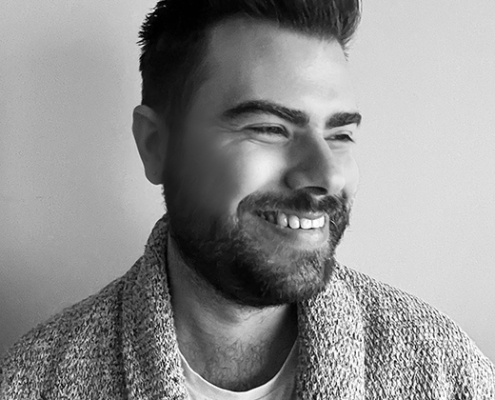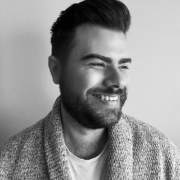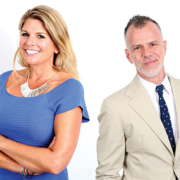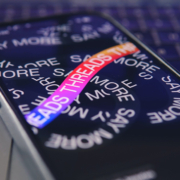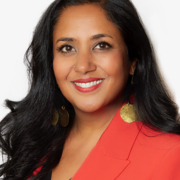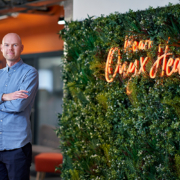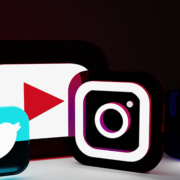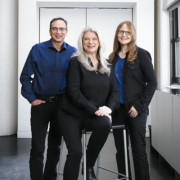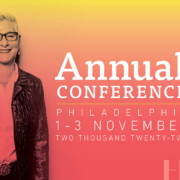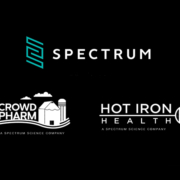Better informed LGBTQ+ marketing could save lives
Better informed LGBTQ+ marketing could save lives
By Leigh Anderson
I consider myself lucky to be a member of an LGBTQ+ community in a state where I essentially feel accepted and fully protected. Although I’m fortunate to be in a place with no shortage of resources and rights, this is certainly not the case for many of the estimated 20 million LGBTQ+ individuals living in the United States.
A study found that 56% of the LGBTQ+ population reported discrimination when seeking medical care, more than half the country offered no protection for LGBTQ+ people seeking medical care, and the majority of trans individuals encountered a significant lack of medical knowledge relevant to their needs. When you consider the impact of living with this situation, it’s not hard to see why among LGBTQ+ youth one person attempts suicide every 45 seconds in the United States, that’s four times the national average.
As an industry, we may not be able to change the political landscape, but as members of the healthcare advertising world, we have a responsibility and role to play in educating and supporting HCPs to deliver inclusive and often life-changing care to the LGBTQ+ community. On top of that, we also have an opportunity, and perhaps an obligation, to better represent the community in a genuine and authentic way. A way that not only delivers affirmative messages, but one that also shows a clear commitment of support for our family, friends, and neighbors within this community.
In recent years, campaigns focused on the LGBTQ+ community have become increasing high profile, and controversial – not just from those trying to restrict the rights of the community, but from within the community itself. The reason is clear even if it is not always understandable. The problem is one of authenticity.
Regardless of age, gender, race, or sexuality, we all want to feel respected and understood. No one deserves to feel exploited or misrepresented. Many of the recent marketing efforts to the LGBTQ+ community fail to connect with these feelings and come across as ineffectively authentic.
Some may say that authenticity is in the eye of the beholder, but when LGBTQ+ marketing campaigns fall flat during the development, research, and insight phases, we’re left with glaring truth – a misinterpretation and fundamental misunderstanding of the target market, our community.
The LGBTQ+ community has long been forced to live “underground” and that stigma exists for many still today. A recent study by GLAAD (the world’s largest LGBTQ+ media advocacy organization) found that the major social media platforms are unsafe for the LGBTQ+ community.
This poses a problem, because we can’t fully rely on traditional types of market research, such as social listening, since true feelings are not often expressed openly by this audience. In addition, if we don’t create the right environment for focus groups or interviews, we’re unlikely to learn the true core insights that lead to better understanding. If you’ve never walked in someone’s shoes, how can you truly understand them? How can you expect to know what they think, how they feel, what they need and want?
For example, can you possibly imagine spending your whole life identifying as a male, but having to live your day-to-day life in the body of a female? Then, after years of emotional, physical, and societal turmoil, you finally begin your transition so you can live life as your fully authentic self. Yet because you chose to not go through the trauma of having a hysterectomy, you still have to have to suffer the pain and indignity of regular visits to a gynecologist, being the only male patient in the office. No? Then how could you expect to authentically engage the trans community on this issue?
As a gay man, I can no more represent the entire LGBTQ+ community than I could expect my sister to represent all women. Yet we regularly find situations where a single token representative is placed on accounts, brand teams, or committees where they are expected to provide the voice for that particular minority. Tokenism is a shortcut that only gives the appearance of diversity, but ends up alienating the audience you hope to reach while managing to reinforce negative stereotypes that amplify the confusion and frustration.
These types of disingenuous campaigns are not only naïve and misguided, they can also cause damage and become dangerous. The concept of corporate pride, which has spread through many industries in recent years, triggered an inevitable backlash from the LGBTQ+ community. Unfortunately, there are too many examples of organizations that fall short on inclusivity while make a show of supporting Pride Month by slapping a rainbow on their company Twitter account. This kind of pretense, no matter how small, will eventually take a toll on the trust, goodwill, and respect that the customers and employees have for those companies.
How do we tackle this issue and start representing the LGBTQ+ community in a way that not only delivers on brand goals, but contributes to real and meaningful change? The answer is shockingly simple. Be genuine; be true.
As an industry, both healthcare and advertising/PR/media, we are all about people and putting them at the heart of what we do. So, it’s time to start doing that here and now. Start with the people we want to reach and make an authentic effort to understand who they are and what they need. Throw out the formulaic strategies, the timeworn tactics, and the outdated traditional marketing approaches. That approach will never work.
The LGBTQ+ community has long been overlooked and exiled from the mainstream, and those circumstances remain the same in 2023. Nevertheless, we pride ourselves on pioneering our space in the underground through our own brand of original culture and creativity. When we learn to embrace those same values in our marketing and adverting campaigns, everyone will benefit. The results may very well be life-saving.
|
Leigh Anderson is an award-winning, Group Creative Director at Triple Threat Communications, with more than 10 years experience in advertising. Originally from the UK, Leigh now lives in Los Angeles, working between LA and NYC. With a background in screenwriting and filmmaking, Leigh is passionate about bringing to life the authentic human stories that drive the work we do in the pharmaceutical and healthcare industry. You can find Leigh on all social channels under @stylisticleigh |

